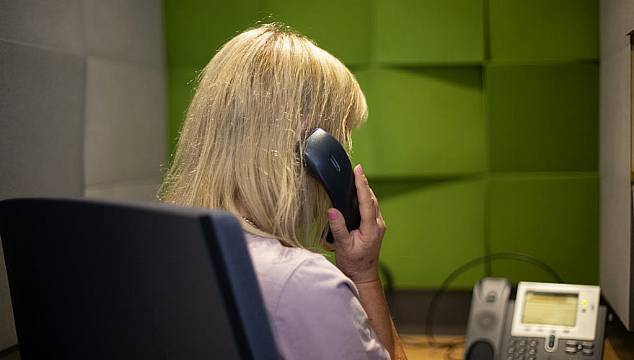Samaritans Ireland may face “challenges” in the coming years as the Covid-19 pandemic makes fundraising more difficult, an Oireachtas committee has heard.
In the first 12 months of the Covid-19 pandemic, the mental health charity received 1,500 calls and emails every day, the committee was told.
Samaritans Ireland, which is calling for an additional €85 million to be allocated to mental health in this month’s Budget, appeared before the Oireachtas mental health sub-committee on Tuesday.
The charity is the only 24-hour free phone support service on the island.
Regional director of Samaritans Ireland, Rory Fitzgerald, told the committee that the decline of cash – accelerated by the pandemic – had the potential to cause a “challenge” for the charity.
“Coinage is disappearing,” he said.
“A lot of our branches depend on church-gate collections.”
He said it was a “big challenge about how we’re going to manage that”.
Mr Fitzgerald told the committee that it costs €1.3 million a year for the charity to run its 13 branches across the country.
He said that he could foresee some funding challenges in the future and did not rule out needing additional support.
It's almost #worldmentalhealthday2021 - a great time to look at our resources for journalists & programme makers.
The media can improve public understanding of issues relating to mental health & suicide & encourage lifesaving conversations 👇
Read more: https://t.co/xi8jnieQir pic.twitter.com/diwKMbXYTM— Samaritans Ireland (@SamaritansIRL) October 4, 2021
“That is going to get challenging in the years ahead. And we may need some support around that. What it is, I don’t know.”
The charity also set out the impact of the Covid-19 pandemic on the service.
Niall Mulligan, the executive director of Samaritans Ireland, said that volunteers listened for over 100,000 hours during the 12 months after Covid-19 restrictions were introduced.
Mr Mulligan also outlined the difficulties the charity had faced during the course of the pandemic.
“At one stage of the pandemic up to 40 per cent of our volunteers were cocooning, either to protect themselves or to protect a family member,” he said.
In 2020, he said that the charity answered a call for help every 56 seconds – with Covid-19 a feature in almost every call the charity received.
Individual calls were longer during the pandemic, staff told the Oireachtas committee.
Samaritans Ireland also saw a 400 per cent increase in calls to the charity’s helpline from prison inmates in 2020, compared to 2019.
“People needed us for a longer time than they did pre-pandemic,” Mr Fitzgerald said.
The charity warned that there might be a “rocky road ahead” in terms of mental health issues.
Mr Mulligan said it should be a key priority for the Government in the years ahead.
The Samaritans staff asked the committee to encourage people in their communities to sign up to train with the charity.
“It’s not sexy to get into all the high-profile programmes. But it’s a very important story,” Mr Mulligan told the committee.
“If Samaritans didn’t exist in the morning, what would the impact of that be on the mental health of Irish society? I think it would be immense.”







